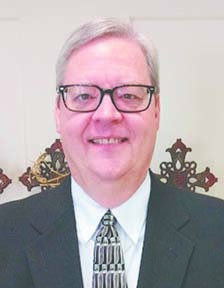
By DON FLETCHER
News Staff Writer
Apple Inc. has warned consumers that scam artists are trying to bilk their victims by using cards issued by the world’s largest technology company. Those scammers have brought their ruse to Atmore, and they’re using the name of a local preacher to try and separate locals from their money.
Andy Gartman, pastor of Atmore First United Methodist Church, confirmed this week reports that the shady solicitors have made several calls to Atmore residents, claiming to be the local pastor.
“I know next to nothing about the particulars,” Gartman said. “All I know is that four women from our church received text messages from someone that was not from me, but who said they were me. (The caller) said I was providing women with treatment for breast cancer.”
The number used for the local solicitations is 251-480-4425, although phone numbers are easily cloned with the right technology. Anyone seeing that number, or any number they don’t recognize, is urged to refuse the call or to hang up as soon as the telephonic scammer begins his or her spiel.
One of the intended victims said each of the women was asked to purchase a $100 Apple Gift Card, then call a certain telephone number and provide the number off the card.
Apple Inc. has a warning posted on its website, indicating that several different scams include a request for cards issued by the company, including Apple gift cards, app store and iTunes gift cards and Apple Store gift cards.
“A string of scams (is) taking place asking people to make payments over the phone for things such as taxes, hospital bills, bail money, debt collection and utility bills,” the web posting reads. “The scams are committed using many methods, including gift cards.”
The company said there is a certain formula the scammers use.
“The victim receives a call instilling panic and urgency to make a payment by purchasing Apple Gift Cards, App Store & iTunes Gift Cards, or Apple Store Gift Cards from the nearest retailer (convenience store, electronics retailer, etc.),” the company explained. “After the cards have been purchased, the victim is asked to pay by sharing the code(s) on the back of the card with the caller over the phone.
“If you’re approached to use the cards for any other payment, you could very likely be the target of a scam and should immediately report it to your local police department as well as the Federal Trade Commission at reportfraud.ftc.gov.
Gartman said the use of his name under false pretenses is frustrating, especially for a man of the cloth.
“I’m just thankful that none of the women from our church fell for it,” he said.
